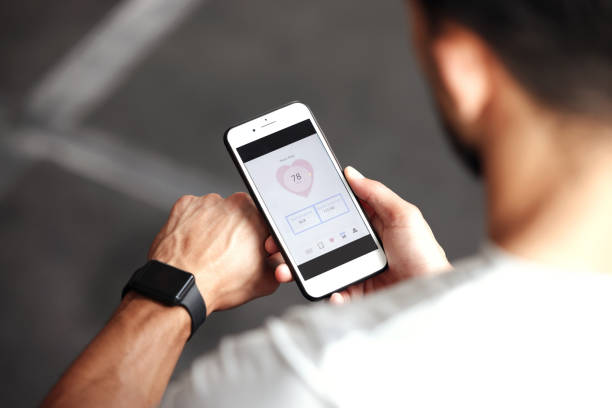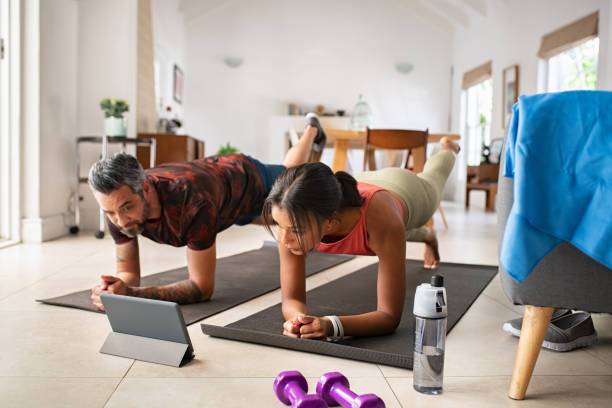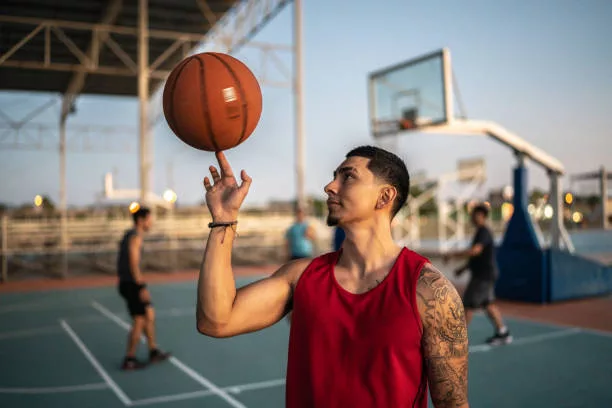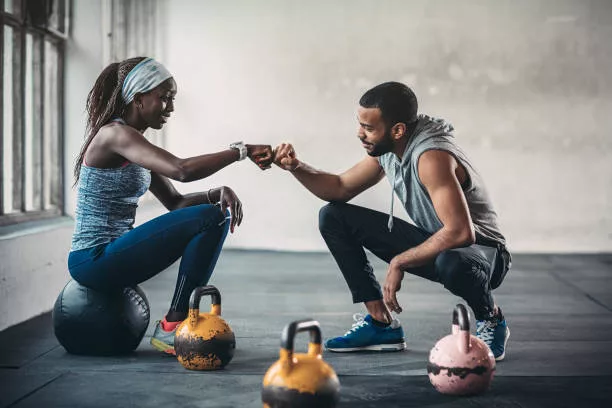Fitness at Your Fingertips
Exercise can be difficult to fit into an already packed schedule, particularly as winter sets in. With AI’s help, this app creates custom workout plans based on user goals and available time (for instance between shows).
Apply this interval-tracking app with audio, frame-by-frame and slow-motion video analysis to enhance technique and performance in fitness training, sports or even everyday workouts. Ideal for fitness training and sports enthusiasts but suitable for anyone.
Workout Apps
Workout apps can be an invaluable addition to your fitness regime, providing extra motivation or guidance when you’re finding it hard to start moving. Furthermore, these apps help keep workouts interesting when sticking with an established routine for long periods of time – some can even help find you one specifically tailored to meet your individual needs!
Some of the top workout apps offer personal trainers who will guide your session with voice and video instructions, while others allow you to create customized routines of your own. Many top options offer free trials or reduced monthly fees so that you can make an informed decision before making an commitment.

This app, developed by a certified personal trainer, offers workouts ranging from five to 30 minutes in duration and can be performed anywhere. Routines provide an optimal blend of easy following with hard enough resistance that you feel the burn. Video instructions make the program user-friendly while its simple interface make for simple navigation.
This app is designed to help users build strength, tone their bodies, and increase flexibility. Users begin by taking a quiz to assess their fitness level before creating an exercise plan tailored specifically to their goals. Once complete, users can review progress made towards these goals as well as adjust any goals as necessary. With both free and paid workout options designed to fit any schedule as well as an online community sharing users’ achievements – this app has you covered for any and all your fitness goals!
Peloton is best-known for its premium indoor cycling classes, but this app can also be used with other exercise bikes or on the road with running and walking workouts. Healthline nutrition and fitness editor Kelli McGrane, MS, RD recommends this app because of its great selection of short (20-minute) workouts which make getting fit easy even on hectic days. Plus it syncs with Apple Music so you can listen while working out from car or home!
Fitness Trackers
Fitness trackers can help keep a detailed log of metrics such as steps taken per day, heart rate monitoring and sleep quality. Furthermore, fitness trackers provide motivation to make healthy lifestyle choices and meet fitness goals.
Your choice of fitness tracker depends on your budget and individual needs, while most models are fairly affordable. More advanced models tend to carry higher price tags; you can find trackers that are splashproof or have higher water resistance that allows them to withstand being submerged in pools, and some even offer stress tracking – usually found on smartwatches but available here too – by monitoring electrical activity from sweat to predict levels of stress.
Most fitness trackers are generally accurate; however, two areas in which they can fall short are calorie counting and sleep monitoring. According to studies, most fitness bands are inaccurate when calculating energy expenditure by between 27-93%, and their wrist location limits their accuracy when measuring movement while sleeping.
For this reason, if your primary objective is weight loss, a food journal app or diet tracker that takes an overall approach to tracking eating habits could be beneficial. But remember: trackers may become harmfully addictive when used as a measure of self-worth rather than as an aid to better health – don’t allow them to distract you from what matters: improving overall wellness!
Many fitness trackers provide features to keep you motivated, such as challenges and rewards for reaching certain milestones. You can also see how your workouts and daily activities compare to others of similar sexe and age range, giving an indication of where your current fitness levels stand in comparison with average levels for people in similar demographics.
Fitness trackers also come equipped with other useful functions such as gyroscopes for measuring rotational movement and altimeters to record changes in elevation. Some trackers feature thermometers which measure skin temperature to help you understand how hard you are working during exercise sessions. You may even find wearables with SpO2 sensors to track blood oxygenation in the skin – helping identify early warning signs of hypoxia or dehydration.
Weight Loss Apps
No matter your goal – whether that be losing weight or building muscle – an app can assist. Most apps designed to assist with weight loss promote calorie restriction and exercise by equipping users with tools they need to meet their goals. Many also incorporate motivational tools and feedback – common strategies used to promote healthier behaviors short term but which may prove harmful over time.
Studies indicate that calorie counting may lead to disordered eating and body image issues in some users. Furthermore, tracking food and exercise with apps could prompt some individuals to engage in unhealthy practices like skipping meals or engaging in excessive snacking. It is always advisable for individuals to seek medical advice prior to altering their diet or increasing physical activity levels.

The top weight loss apps provide users with tools that help them meet their health and fitness goals by tracking calories, providing healthy recipes, exercising regularly, or both. Some are free while others require subscription for accessing more features. Medical News Today reviews each app carefully for quality, making sure no questionable health claims or unsafe business practices exist within it.
MyFitnessPal is one of the most acclaimed fitness apps, offering both free and paid versions that allow users to track water, food, exercise and mood as well as their calorie intake for up to six months. The app includes over 14 million foods for tracking purposes with barcode scanning to accurately determine their calorie contents – it even gives numeric and visual feedback when your daily calorie goal has been exceeded – such as turning red or displaying an emoji when this goal has been exceeded!
This app also has a workout feature to create on-demand workouts and track hydration, sleep and nutrition. With its modern design and customizable options, creating workout videos, photos or descriptions for exercises has never been simpler! Plus you can connect it with wearable devices to track activity.
Sleep Apps
Sleep is just as crucial to staying fit as exercise and nutrition, so a quality night’s rest should not be neglected when it comes to fitness. An app may provide exactly the solution if you need assistance sleeping through the night, or simply need something relaxing before bedtime – maybe an app would do.
Searching the app store will reveal various solutions, many of them free. In fact, this year’s CES convention featured an exhibit dedicated solely to sleep technology such as trackers and smart beds. Apps provide measurable data which may work alone or together with wearable devices.
Some sleep apps can help document and analyze your sleeping habits (SleepScore is one such app); others focus on tracking the best time and place for you to wake up each day based on your REM cycle (apps like Sleep as Android and iSleep); still others focus on relaxing you in the hour before sleeptime with soothing sounds or music (iSleep, BetterSleep) or meditation (tenPercent Happier from ABC anchor Dan Harris) before going to sleep.
Many sleep apps claim to diagnose issues that interfere with a good night’s rest (sleep apnea for instance), but the medical director at North Dakota Center for Sleep in Fargo warns against their effectiveness due to not being scientifically rigorous; their fine print often indicates they’re intended more as entertainment rather than health tools; furthermore they’re not FDA-approved and could misinterpret certain data (for instance a car driving past might mislead detection with movement detection).
More validation studies must be completed on these types of apps; but in the meantime it might be beneficial to try an app like Pzizz, which offers playlists and immersive stories designed to put users into an appropriate sleep state. It even boasts a clinical trial on its website – though any results should be interpreted with care.



